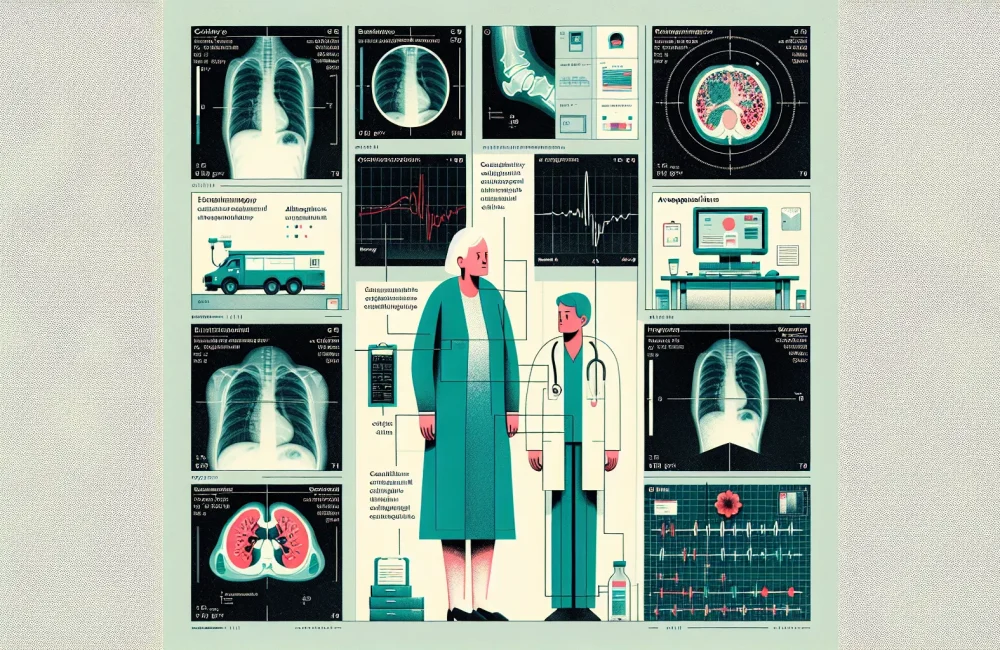By CAFMI AI From Nature Reviews Immunology
Understanding Trained Immunity in Chronic Diseases
Trained immunity represents a paradigm shift in our understanding of innate immune memory. Unlike classical adaptive immunity, which relies on specific recognition by lymphocytes, trained immunity involves epigenetic and metabolic rewiring of innate immune cells such as monocytes, macrophages, and natural killer (NK) cells. This reprogramming enables these cells to mount a heightened and more efficient response upon encountering secondary stimuli. This concept has expanded the scope of innate immunity from mere initial defense to a dynamic participant in long-term immune responses. Recent research highlights the significant influence of trained immunity in chronic inflammatory diseases, which are a major concern for clinicians due to their prevalence and complexity. Diseases such as atherosclerosis, diabetes, and various autoimmune disorders showcase how trained immunity can intensify pathological inflammation. Epigenetic changes in myeloid cells lead to an exaggerated inflammatory cascade, contributing to tissue damage and disease progression. This heightened state of innate immune responsiveness means that patients may experience more severe symptoms or faster disease advancement, posing challenges for management and treatment. However, the double-edged nature of trained immunity also offers a therapeutic target: by modulating this immune memory, clinicians can potentially curb maladaptive inflammation. Treatment strategies are emerging that focus on altering the metabolic and epigenetic state of these innate immune cells to decrease chronic inflammation and promote tissue repair. This therapeutic angle is particularly relevant in primary care settings where management of chronic inflammatory diseases often requires balancing inflammation control with maintaining necessary immune function.
Trained Immunity and Cancer Progression
Trained immunity also plays a complex role in cancer, influencing tumor development and progression. Innate immune cells trained by certain stimuli can either inhibit or promote cancer depending on the context. On one hand, trained macrophages and NK cells can enhance anti-tumor responses by improving immune surveillance and destroying malignant cells. On the other hand, chronic trained immunity may lead to a pro-inflammatory tumor microenvironment that supports tumor growth, angiogenesis, and metastasis. Persistent activation of myeloid cells can stimulate the secretion of factors that suppress adaptive immune responses and facilitate cancer evasion. Understanding this dual role is crucial for developing therapies that harness trained immunity to boost cancer immunotherapy while avoiding unintended tumor-promoting effects. Research is ongoing to identify specific epigenetic and metabolic targets that can modulate trained immunity selectively in cancer patients.
Therapeutic Implications and Future Directions
The emerging knowledge about trained immunity opens new avenues for therapeutic interventions in both chronic inflammatory diseases and cancer. Drugs targeting the epigenetic and metabolic pathways responsible for trained immunity are in development, aiming to either enhance beneficial responses or mitigate harmful inflammation. For chronic diseases, modulating trained immunity could reduce tissue damage and improve clinical outcomes. In cancer, combinational therapies that include trained immunity modulators alongside existing immunotherapies may potentiate anti-tumor effects. Additionally, vaccines and adjuvants might be designed to induce favorable trained immunity states, promoting long-lasting protection. Future research is focused on unraveling the precise molecular mechanisms and cell-type specific effects of trained immunity, which will inform personalized medicine approaches and optimize therapeutic strategies.
Read The Original Publication Here






